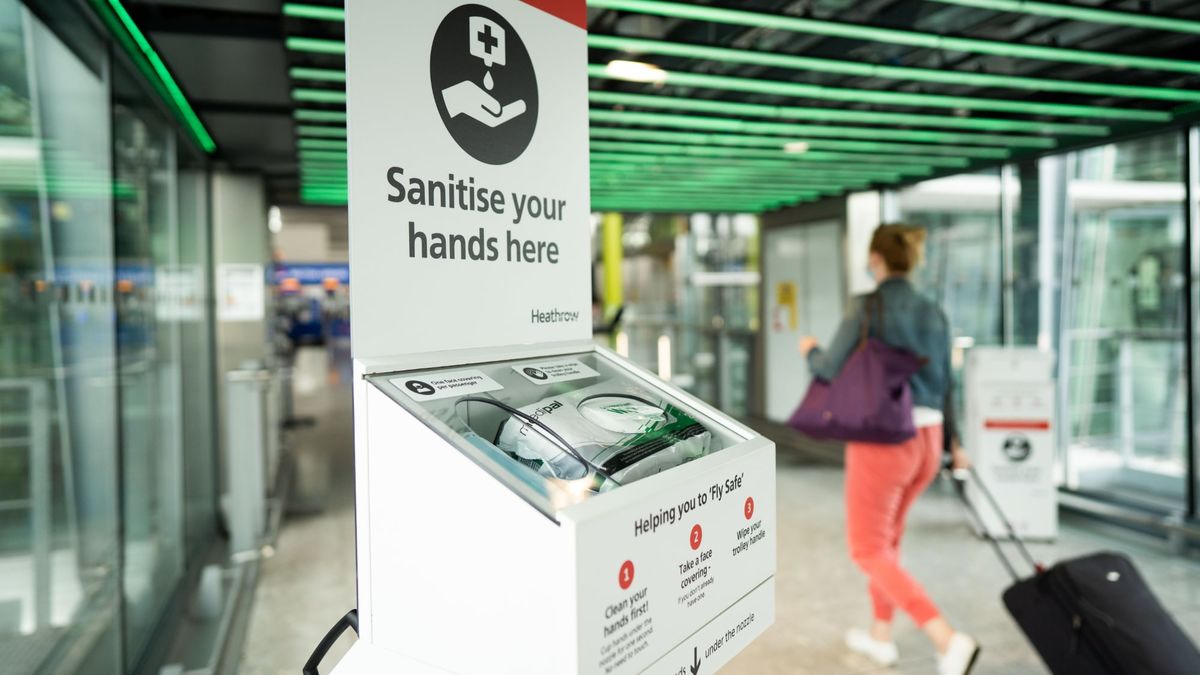Singapore’s new COVID breath test gives immediate results
The Breathalyzer-style device will use AI and machine learning to recognise Covid-like traits in a person’s ‘breath signature’.

Singapore will begin using a breath test to detect Covid-19 and give accurate results within a minute.
The test, developed by National University of Singapore spin-off startup Breathonix, works much like a standard breathalyzer test that police might use to see if an erratic driver is drunk.
A person blows into a one-way valve mouthpiece, and compounds in the person’s breath – think of it as a breath signature – are compared by machine learning software against the sort of breath signature that would be expected from someone who’s Covid-positive.
Singapore will screen incoming travelers from Malaysia at the Tuas Checkpoint on the western side of the island in a deployment trial of the breathalyzers, the Straits Times reported.
Anyone who tests positive in the breath test would be screened in a confirmatory PCR swab test. Singapore currently screens entrants with antigen rapid tests, which would continue alongside the breathalyzers.
Accurate tests at speed could be key to helping unlock a travel sector that has slowed to a crawl during the pandemic.
Even as the U.S. and parts of Europe begin to reopen with higher viral caseloads, Singapore and other “Covid-Zero” countries in Asia have been hesitant to open borders and have cracked down harshly on any sign of flare-ups.
The Breathonix test has so far undergone three clinical trials, two in Singapore and another in Dubai. It achieved a sensitivity of 93% and specificity of 95% in one early Singapore-based pilot study that involved 180 patients.
Changi adopts zone-based transits
Singapore’s Changi Airport will also impose stricter measures at its terminals to safeguard against further coronavirus transmissions after concluding investigations into an earlier outbreak.
The airport will separate staff handling incoming and outgoing travelers into various zones and will implement stringent movement controls between these areas, Changi Airport Group CEO Lee Siow Hiang was cited as saying. The aim is to have the new steps in place by June 13.
Singapore currently has 32 active virus clusters. The one at Changi Airport is the largest, with 108 linked cases as of Sunday, according to health ministry data.
The stricter measures come after an investigation into the airport cluster revealed that a more contagious variant that was first detected in India can spread even via brief contact.
The new safety measures will apply to about 14,000 workers at the airport’s terminals. Here are more details:
- Arriving passengers will be separated from departing travelers in respective zones
- Staff working in each zone will be prohibited from mingling with staff in other zones
- Workers in the highest-risk zone, Zone 1, must wear personal protective equipment at all times. Only fully vaccinated staff will be rostered for duty in this zone
- Routine rostered daily testing for staff in the highest-risk zone will be shortened, with one PCR test every seven days and one antigen rapid test every three days
- The group will work toward conducting daily non-invasive tests, which yield results in minutes, for all airport workers in Zone 1
Passengers from “very high-risk countries” will be escorted to remote gates in Terminal 2 for immigration clearance and transport to quarantine facilities, without passing through the other terminals, according to the report.
Singapore has been racing to contain a new wave of infections in recent weeks and has pledged to increase testing and surveillance in a bid to ring-fence transmissions.
This article is published under license from Bloomberg Media: the original article can be viewed here